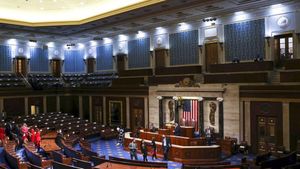President-elect Donald Trump has stirred the political pot once again with his recent announcement to nominate Robert F. Kennedy Jr. as the new Secretary of Health and Human Services (HHS). This choice has already ignited debates about public health and safety, but it’s also reflective of the unique position Kennedy occupies within the current political climate.
During his announcement, Trump expressed enthusiasm for Kennedy's appointment, stressing his concerns about the influence of the industrial food complex and pharmaceutical companies on American health. “For too long, Americans have been crushed by the industrial food complex and drug companies who have engaged in deception, misinformation, and disinformation when it come to Public Health,” Trump stated on social media. He aims for Kennedy to oversee significant reforms aimed at countering these issues.
The Department of Health and Human Services plays a substantial role within the federal government, managing around $116.8 billion annually. It houses major public health agencies like the Centers for Disease Control and Prevention (CDC), the Food and Drug Administration (FDA), and the National Institutes of Health (NIH). With such vast responsibilities, the nomination could lead to significant shifts, especially considering Kennedy's controversial background.
Kennedy, well-known as an environmental lawyer and anti-vaccine activist, has been vocal against vaccine mandates and often discredited scientific consensus on vaccine safety. He previously made headlines by promoting unfounded claims about vaccines being linked to autism, which many experts have debunked. Critics of his nomination worry about his ability to lead HHS effectively, particularly due to his long-standing anti-vaccine stance. Yet, since endorsing Trump after suspending his presidential campaign earlier this year, Kennedy has become aligned with Trump's ambitious, albeit contentious, vision for public health.
The nomination process is expected to face significant hurdles as it will require Senate confirmation. Already, reactions have poured in from both sides of the aisle. Some Republican senators have expressed cautious optimism about Kennedy’s focus on transparency and health, like Louisiana Senator Bill Cassidy, who wrote, “RFK Jr. has championed issues like healthy foods and the need for greater transparency.” Conversely, Democrats and public health officials have raised alarms over Kennedy's potential direction of federal health agencies. They fear his leadership could exacerbate vaccine hesitancy among the public.
Shortly after the announcement, shares of major vaccine manufacturers like Pfizer and Moderna reacted swiftly, dropping sharply during after-hours trading. The market's response indicates just how polarized the appointment of Kennedy may turn out to be. This incident highlights the broader concern about how Kennedy may affect public attitudes toward vaccines and public health measures during his tenure.
Kennedy's focus on reforming the very agencies he may soon oversee reflects his substantive discontent with the current structure of HHS. He has made statements alluding to severe changes he wishes to implement, including significant cuts to budgets and personnel at various public health departments. For example, he suggested removing fluoride from public water supplies and criticized federal dietary guidelines dictated by health experts.
The confirmation process promises to bring Kennedy's complex past and unorthodox views under scrutiny. Democrats have already expressed their opposition vehemently, branding him as “a science-denying, morally-bankrupt conspiracy theorist,” as noted by Lisa Gilbert, co-president of the public interest group Public Citizen. Many fear his policies could dilute efforts to combat major public health threats, especially following recent global health crises like COVID-19.
Kennedy reportedly plans to implement his unique vision of health policy, merging his skepticism with reformist ideals. He has also shown interest in addressing the underlying causes of chronic disease and promoting nutritional environments, though critics question his qualifications and approach going forward.
The debate around Kennedy's nomination is more than just political maneuvering; it mirrors broader societal conflicts surrounding science, public health policy, and trust in the federal government. His appointment could also heighten existing tensions, with activists on both sides potentially mobilizing significantly during the confirmation process.
At 70, Kennedy brings with him not only his prominent family name—being the son of Robert F. Kennedy and nephew of John F. Kennedy—but also decades of advocacy and controversy. Critics often cite his history of promoting conspiracy theories as detrimental to public trust, particularly at such a pivotal moment for American health policy.
This appointment will undoubtedly be one to watch as it takes shape. The ripple effects of Kennedy's influence on HHS could set precedents for how federal health policies navigate the often turbulent waters of science communication and public trust.
Despite the backlash, some Republican senators, like Rand Paul, have celebrated the nomination, framing it as a necessary course correction from previous administrations. Paul remarked on social media, highlighting Kennedy’s potential to restore integrity to the department, stating, “Congratulations to @RobertKennedyJr on his nomination as Secretary of Health and Human Services. Finally, someone to detox the place after the Fauci era!”
While much is still up for debate, the confirmation hearings promise to be electrifying. They provide not just insight on Kennedy's own perspectives but also demonstrate the stark divide between differing political and ideological beliefs surrounding public health.
Only time will tell if Robert F. Kennedy Jr.'s nomination will be met with overwhelming resistance, embrace, or perhaps, transformation within the HHS. One thing is certain, the stakes are high as America continues to navigate complex health challenges and the political ramifications around them.



